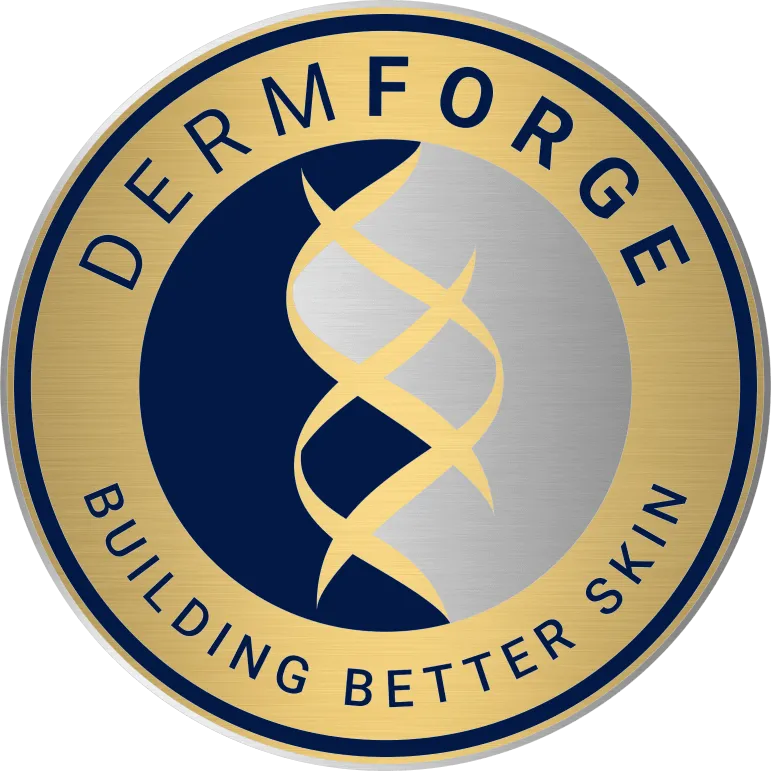Textured skin is a common concern. It can manifest in various ways, including roughness, unevenness, bumpy or raised areas, and visible pores. This article aims to comprehensively understand textured skin, its causes, impacts, and potential solutions. By gaining insight into this issue, individuals can proactively address textured skin and achieve a smoother, more radiant complexion.
Defining Textured Skin
Textured skin refers to an uneven surface and irregularities on the skin. It often appears as small bumps, rough patches, or a lack of smoothness. These imperfections can affect any part of the body, but they are commonly observed on the face, particularly the forehead, cheeks, and chin.
The Science Behind Skin Texture
The texture of our skin is largely influenced by its outermost layer, the epidermis. This layer consists of multiple layers of skin cells, including keratinocytes, which produce keratin, a protein that contributes to the strength and integrity of the skin. In addition, the production and arrangement of collagen and elastin fibers within the dermis, the layer beneath the epidermis, play a crucial role in maintaining skin texture.
Collagen is a protein that provides structural support to the skin, keeping it firm and smooth. Conversely, elastin allows the skin to stretch and bounce back to its original shape. Together, these two proteins help maintain the skin's elasticity and prevent the formation of textured skin.
Common Causes of Textured Skin
Several factors can contribute to the development of textured skin:
- Excessive sebum production: Overactive oil glands can lead to clogged pores and the formation of bumps and rough patches. When sebum, the skin's natural oil, becomes trapped in the pores, it can mix with dead skin cells and bacteria, resulting in acne and textured skin.
- Environmental pollutants: Exposure to pollutants like dirt, dust, and toxins can accumulate on the skin's surface, causing congestion and unevenness. These pollutants can clog the pores, disrupt the skin's natural barrier, and contribute to the development of textured skin.
- Improper skincare routine: Inadequate cleansing, lack of exfoliation, and failure to moisturize regularly can all contribute to textured skin. Cleansing helps remove dirt, oil, and impurities from the skin, while exfoliation helps slough off dead skin cells, promoting a smoother texture. Moisturizing, on the other hand, helps keep the skin hydrated and supple.
- Age-related changes: As we age, collagen and elastin production decreases, leading to a loss of skin elasticity and a more textured appearance. Additionally, the natural process of cell turnover slows down, resulting in a buildup of dead skin cells on the skin's surface. These changes can contribute to the development of textured skin.
It is important to note that while these factors can contribute to textured skin, each individual's skin is unique, and the causes may vary from person to person. Understanding the underlying causes can help guide skincare routines and treatments aimed at improving skin texture.
The Impact of Textured Skin
Textured skin can have both psychological and physical effects on individuals. Understanding the impact of textured skin goes beyond the surface level. It delves into the intricate relationship between skin health and overall well-being. The texture of one's skin is not just a cosmetic concern but a reflection of internal and external factors that influence its condition.
Psychological Effects of Skin Texture Issues
Individuals with textured skin may experience various psychological effects, including decreased self-confidence and self-esteem. The visible imperfections can make individuals self-conscious about their appearance and may impact their social interactions and overall quality of life.
Moreover, the emotional toll of dealing with textured skin can lead to anxiety and stress, further exacerbating the psychological burden. Seeking support and professional guidance can be crucial in addressing these challenges and promoting mental well-being.
Physical Discomfort Associated with Textured Skin
Textured skin can also cause physical discomfort besides the psychological impact. Rough and bumpy patches may feel dry, itchy, or irritated. In some cases, excessive texturing can result in inflammation or even painful conditions like acne and rosacea.
It is essential to recognize the signs of skin discomfort and take proactive steps to address them. From gentle skincare routines to targeted treatments, managing textured skin conditions requires a holistic approach that considers both the external symptoms and internal factors contributing to skin health.
Identifying Your Skin Type
Understanding your skin type is a crucial step in effectively addressing textured skin. By knowing your skin type, you can tailor your skincare routine to meet specific needs, promoting a healthier and more radiant complexion.
There are five main skin types: normal, dry, oily, combination, and sensitive. Normal skin is well-balanced and has minimal issues, while dry skin lacks moisture and may feel tight or flaky. Oily skin produces excess sebum, leading to shine and potential breakouts. Combination skin is a mix of oily and dry areas requiring targeted care. Sensitive skin is easily irritated and may react to certain products or environmental factors.
The Role of Genetics in Skin Texture
Genetics plays a significant role in determining our skin type and texture. People with naturally oily skin are more prone to clogged pores and bumpy texture, while those with drier skin may have rough patches due to inadequate moisture retention. Understanding your genetic predispositions can help you choose the right skincare products and routines to manage your skin effectively.
Additionally, genetics can influence how your skin ages. Factors such as collagen production, elasticity, and pigmentation are partly determined by genetic makeup. Knowing your family history of skin conditions and aging concerns, you can take proactive steps to maintain youthful and healthy skin.
Environmental Factors Affecting Skin Texture
Environmental factors can also influence skin texture. Overexposure to the sun's harmful UV rays, extreme weather conditions, and pollutants can contribute to the development of texturing and other skin issues. Protecting the skin from these environmental stressors is essential. Using sunscreen daily, wearing protective clothing, and seeking shade during peak sun hours can help prevent premature aging and textural irregularities.
In addition to external factors, lifestyle choices such as diet, stress levels, and skincare habits can impact skin texture. A balanced diet rich in antioxidants and hydration, stress management techniques, and a consistent skincare routine tailored to your skin type can all contribute to smoother, more even-textured skin.
Prevention and Treatment of Textured Skin
While completely eradicating textured skin may not always be possible, several measures can help improve its appearance and minimize its impact.
Understanding the underlying causes of textured skin is crucial in developing an effective treatment plan. Genetics, sun exposure, aging, and skin conditions like acne can contribute to uneven skin texture. Individuals can better target their skincare routine and treatments by identifying these triggers for optimal results.
Daily Skincare Routines for Smooth Skin
An effective daily skincare routine is essential for maintaining smooth and healthy-looking skin. This routine should include cleansing, exfoliating, moisturizing, and sun protection. Also, incorporating products with ingredients like retinol, AHAs, BHAs, and niacinamide can help promote skin renewal and improve texture.
In addition to topical treatments, lifestyle factors such as diet and hydration can also impact skin texture. A balanced diet rich in antioxidants, vitamins, and essential fatty acids can support skin health from within. Staying hydrated by drinking adequate water daily can further enhance skin elasticity and texture.
Medical Treatments for Textured Skin
In more severe cases where over-the-counter products are insufficient, seeking professional assistance from dermatologists or skincare experts may be necessary. They can provide various medical treatments, such as chemical peels, microdermabrasion, laser resurfacing, or prescription medications tailored to address specific texturing issues.
Dermatologists may also recommend microneedling or dermabrasion to stimulate collagen production and improve skin texture. These treatments promote cell turnover and smooth out uneven areas, resulting in a more refined complexion. It's essential to consult with a skincare professional to determine the most suitable treatment option based on individual skin concerns and goals.
Myths and Misconceptions About Textured Skin
Several myths and misconceptions surround textured skin. While oily skin is often associated with textural issues, dry, combination, and even normal skin types can also experience texture irregularities. Factors such as genetics, environmental stressors, and skincare habits can all contribute to the development of uneven skin texture.
Debunking Common Myths
One prevailing myth is that textured skin is only a problem for individuals with oily skin. In reality, anyone, regardless of their skin type, can experience texturing issues. Another misconception is that aggressive scrubbing and excessive exfoliation can solve the problem.
However, overexfoliating can disrupt the skin barrier and worsen the texture over time.
Another common myth is that textured skin is solely a result of poor hygiene. While maintaining a consistent skincare routine is essential for healthy skin, factors such as genetics, aging, and sun damage play significant roles in the development of skin texture. Understanding the multifaceted nature of textured skin can help individuals approach their concerns with a more holistic perspective.
Understanding the Reality of Skin Texture
It is important to approach textured skin with realistic expectations. While skincare products and treatments can significantly improve the appearance of textured skin, complete elimination may not be possible for everyone. Embracing and accepting one's natural skin texture is crucial for cultivating self-confidence and maintaining a positive body image.
Furthermore, seeking professional guidance from dermatologists or skincare specialists can provide personalized recommendations for addressing textured skin concerns. By incorporating a tailored skincare regimen and practicing self-care habits, individuals can enhance their skin's overall health and appearance, leading to a more radiant complexion.
Conclusion
Understanding textured skin is the first step toward addressing this common concern. By recognizing the science behind skin texture, identifying causes, and evaluating the impacts, individuals can make informed decisions about prevention and treatment. Additionally, dispelling myths and maintaining realistic expectations can provide a more holistic approach to achieving a smoother and more confident complexion.
Ready to reclaim more even skin? Explore DermForge’s collection of skincare solutions, including high-dose collagen supplements, to help reduce the appearance of textured skin. Shop now and take the first step toward a smoother, more radiant appearance.


